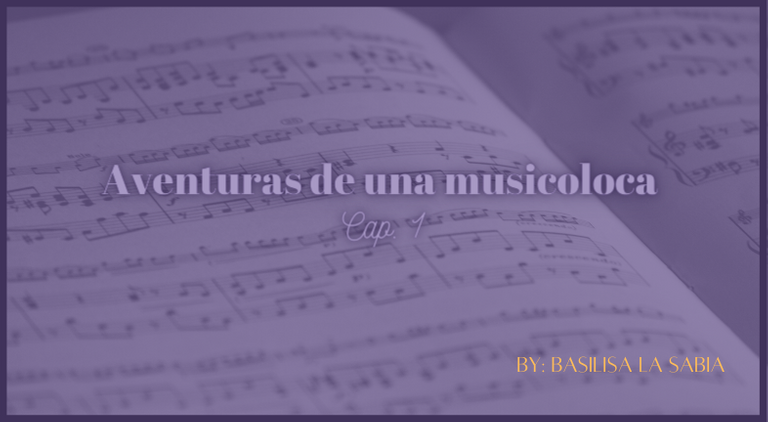

(Español)
Cap 1: ¿Por qué elegí la musicología?
Musicóloga como tal no soy. Un profesor de nosotros dice que somos pichones de musicología, la verdad ¡me parece muy tierno! Me imagino como si fuésemos pichones de una nueva especie de aves que se dedican a recopilar, estudiar y reconstruir testimonios. Recuerdo la primera vez que sentí un placer real por entender la música más allá de la escucha por mero placer estético. Estaba estudiando composición, y en mis clases de análisis, descubrí una complejidad más allá del resultado musical en sí. Era sumergirse en el pensamiento del compositor de un período determinado, era entender el contexto de una época. Era ver la música más allá de lo que suponemos que nos concierne exclusivamente por ser músicos. Era, también, comprender métodos, formas, texturas, matemáticas... Fue mi primer acercamiento a la investigación musical, y desde ese día, me cuestioné fuertemente si mi camino realmente era la composición.
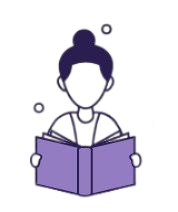

Mi primera clase en una materia del área a la que me quería adentrar para mi fue una revelación. ¡No me estaba aburriendo! Me sentía muy a gusto. Era 2018, me acuerdo. Ese mismo año empecé mi travesía para cambiar de carrera. Fue duro, muchas lágrimas y estrés en el camino... Pero yo estaba muy dispuesta a darlo todo por ello. Ya veía mi camino muy claro, y a pesar de no ser la estudiante más disciplinada ni brillante, yo quería eso. Ya había dado el primer paso. Ahora, lo importante era el por qué: ¿Para qué quiero ser musicóloga?.
"Ediciones críticas" pensé en primer lugar. Suena simple, pero ese es el resultado final de un largo proceso. Todo empezaba en el aula. En mis primeras clases de musicología, tuve que aprender lo básico, lo esencial, lo casi obvio. Ahí empieza el trabajo del musicólogo: en aprender las herramientas. Tuve que definir con mis propias palabras lo que es la musicología. ¿Han intentado definir su vocación? ¡No es tan fácil como parece!. Recuerdo a uno de mis profesores mostrándome varias definiciones de musicología. Yo anoté en mis apuntes que era el campo del conocimiento que tiene como objeto la investigación musical. Definición a la que luego le agregaría más items y a la que desde luego, la vería ampliamente necesaria para entender cómo es de importante la música para el ser.
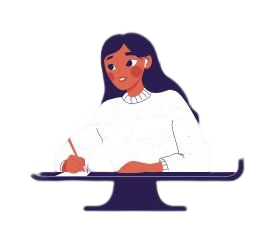

Veía en todos lados una oportunidad para una posible investigación. Me sentía parte de un momento histórico en sí, sentía que mis rockstars y mis popstars tenían que ser estudiados como un gran fenómeno mundial. Estaba pensando en el presente. Un poco más madura, empecé a entender la importancia de preservar algo que es nuestro y que ha sido poco atendido en nuestro país: Nuestro pasado. El tiempo es una construcción social, pero aún así, no perdona en lo más mínimo a los documentos. Y finalmente, reflexioné sobre lo necesario que es el estudio y el método a la hora de enfrentarnos a fuentes primarias y preservación de testimonios para que las próximas generaciones puedan entender cómo fue el siglo XXI. Estaba pensando en el futuro. Somos nosotros, historiadores y musicólogos, los que tenemos que enfrentarnos a esa realidad.
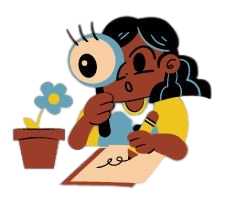
También, en el camino, vi que no sólo tenía un camino por recorrer como musicóloga. Hay muchos, y en el área de las tradiciones y el folclore, también he visto mucho potencial, belleza y diversidad en nuestro país. En fin, un mundo de riquezas que esperan ser documentadas y honradas. Apenas estaba (y estoy) descubriendo el mundo de la musicología.

Otro aspecto revelador para mi, fue entender que hay mucho del oficio de historiador en la musicología. La única diferencia es que nosotros los musicólogos, somos especialistas en música. Sabemos leer partituras y analizarlas. Después de un largo período de acercamiento y aprendizaje del manejo archivos documentales, historiografía, y música colonial venezolana, me ha tocado enfrentar las fuentes primarias. El reto más fuerte y más complicado para una pichón desplumada y hecha trizas por la cuarentena. ¿Apasionante? ¿encantador? ¿interesante? ¡claro! Pero enfrentarse a la caligrafía de determinada época, mas el tipo de castellano que se manejaba en aquél entonces, trae consigo una experiencia hermosamente traumática para un aprendiz. Sin embargo, hubo una lectura que me ayudó muchísimo a encausarme y no perder mi norte: Apología a la historia o el oficio del historiador de Marc Bloch. Uno de los fundadores de la escuela de los Annales, hombre que vivió la segunda guerra mundial, y que en sus últimos y trágicos días, escribió esta obra tan hermosa que, si eres historiador o piensas serlo, te lo recomiendo ampliamente. Libro que definitivamente, pienso reseñar en un futuro.
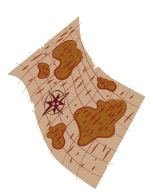

He llorado, he dormido poco, he tenido miedo. El camino no es fácil... Pero no me arrepiento un sólo segundo de seguir en él. He conocido a personas que admiro y aprecio. Me siento en una hermosa familia, donde tengo a muchas hermanas talentosas y a un par de personas que considero mis maestros. Ellos han hecho posible que me enamore mucho de esta carrera. Con este primer capítulo, quiero que conozcan esta parte de mi. Que a parte de rockstar y poeta, soy una musicoloca. Una loca por la investigación de la música, vamos.

(English)
Chap 1: Why did I choose musicology?
I am not a musicologist as such. One of our professors says that we are musicology chicks, and I think that's very sweet! I imagine us as if we were chicks of a new species of birds dedicated to collecting, studying and reconstructing testimonies. I remember the first time I felt a real pleasure in understanding music beyond listening as a mere aesthetic pleasure. I was studying composition, and in my analysis classes, I discovered a complexity beyond the musical result itself. It was to immerse myself in the thinking of the composer of a given period, it was to understand the context of an era. It was to see music beyond what we assume concerns us exclusively because we are musicians. It was, also, to understand methods, forms, textures, mathematics.... It was my first approach to musical research, and from that day on, I strongly questioned whether my path was really composition.


My first class in a subject area I wanted to go into for me was a revelation. I wasn't getting bored! I was feeling very much at ease. It was 2018, I remember. That same year I started my journey to change careers. It was hard, lots of tears and stress along the way.... But I was very willing to give everything for it. I already saw my path very clear, and despite not being the most disciplined or brightest student, I wanted that. I had already taken the first step. Now, the important thing was the why: Why do I want to be a musicologist?
"Critical editions" I thought first. It sounds simple, but that is the end result of a long process. It all started in the classroom. In my first musicology classes, I had to learn the basics, the essentials, the almost obvious. That's where the work of the musicologist begins: in learning the tools. I had to define in my own words what musicology is. Have you ever tried to define your vocation? It's not as easy as it seems! I remember one of my professors showing me various definitions of musicology. I wrote down in my notes that it was the field of knowledge whose object is musical research. A definition to which I would later add more items and to which, of course, I would see it as largely necessary to understand how important music is to being.


I saw everywhere an opportunity for possible research. I felt part of a historical moment in itself, I felt that my rockstars and my popstars had to be studied as a big world phenomenon. I was thinking about the present. A little more mature, I began to understand the importance of preserving something that is ours and that has been little attended to in our country: our past. Time is a social construction, but even so, it does not spare documents in the least. And finally, I reflected on how necessary study and method are when it comes to dealing with primary sources and preserving testimonies so that the next generations can understand what the 21st century was like. I was thinking about the future. It is we, historians and musicologists, who have to face that reality.

Also, along the way, I saw that I had not only one road to travel as a musicologist. There are many, and in the area of traditions and folklore, I have also seen a lot of potential, beauty and diversity in our country. In short, a world of riches waiting to be documented and honored. I was (and am) just discovering the world of musicology.
Another revealing aspect for me was to understand that there is much of the historian's craft in musicology. The only difference is that we musicologists are music specialists. We know how to read scores and analyze them. After a long period of approaching and learning how to handle documentary archives, historiography, and Venezuelan colonial music, I have had to face the primary sources. The strongest and most complicated challenge for a pigeon plucked and torn to pieces by the forties. Exciting? charming? interesting? of course! But facing the calligraphy of a certain period, plus the type of Spanish that was used at that time, brings with it a beautifully traumatic experience for an apprentice. However, there was one reading that helped me a lot to get my bearings and not lose my bearings: Marc Bloch's Apology of History or the Historian's Trade. One of the founders of the school of the Annals, a man who lived through the Second World War, and who in his last and tragic days, wrote this beautiful work that, if you are a historian or if you are thinking of becoming one, I highly recommend it. A book that I definitely plan to review in the future.


I have cried, I have slept little, I have been afraid. The road is not easy... But I don't regret a single second of continuing on it. I have met people I admire and appreciate. I feel I am in a beautiful family, where I have many talented sisters and a couple of people I consider my teachers. They have made it possible for me to fall in love with this career. With this first chapter, I want you to know this part of me. That besides being a rockstar and a poet, I am a musicoloca. A music research freak, come on.

Todos los textos son traducidos con: https://www.deepl.com/translator
¡Gracias por leer!
Thanks for reading!

Thanks for reading!

~~~ embed:1409518496564776971https://twitter.com/HiveBlogShare/status/1409610413289918465 twitter metadata:Y2hhc3RyYWNhdHJhc3x8aHR0cHM6Ly90d2l0dGVyLmNvbS9jaGFzdHJhY2F0cmFzL3N0YXR1cy8xNDA5NTE4NDk2NTY0Nzc2OTcxaHR0cHM6Ly90d2l0dGVyLmNvbS9IaXZlQmxvZ1NoYXJlL3N0YXR1cy8xNDA5NjEwNDEzMjg5OTE4NDY1fA== ~~~
The rewards earned on this comment will go directly to the person sharing the post on Twitter as long as they are registered with @poshtoken.
Que bueno que tienes clara tu vocación @basilisalasabia la música, es otro idioma,es el lenguaje del alma y el estudiarla debe ser aun mas apasionante, gracias por compartir.
Congratulations @basilisalasabia! You have completed the following achievement on the Hive blockchain and have been rewarded with new badge(s) :
Your next payout target is 250 HP.
The unit is Hive Power equivalent because your rewards can be split into HP and HBD
You can view your badges on your board and compare yourself to others in the Ranking
If you no longer want to receive notifications, reply to this comment with the word
STOPCheck out the last post from @hivebuzz:
Que bueno que te gusta tu profesión :).